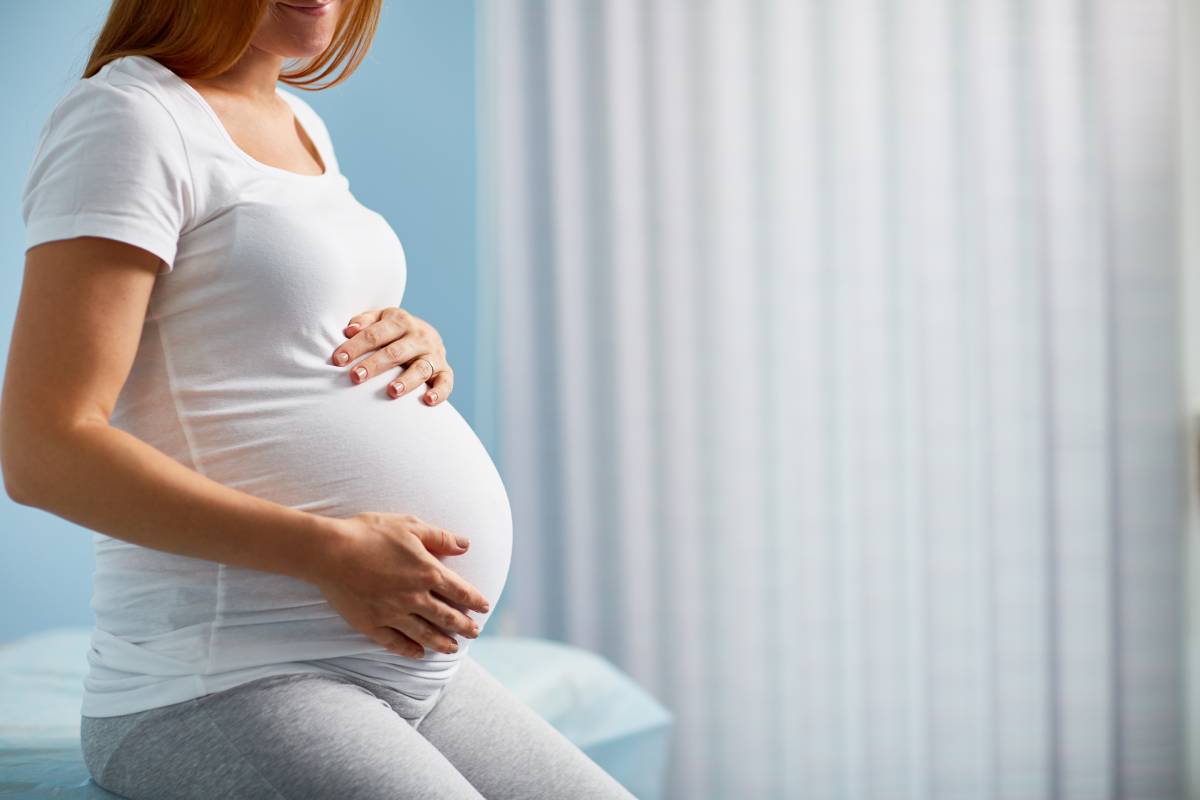Elevated Risk of Nausea & Vomiting in Pregnant Surgical Patients

50-80% of pregnant people experience nausea and vomiting during pregnancy (“Management of Nausea and Vomiting in Pregnancy”, 2021). These symptoms are commonly referred to as “morning sickness” when mild. However, severe nausea and vomiting of pregnancy, known as hyperemesis gravidarum, can affect the health of the pregnant person and fetus and cause severe electrolyte abnormalities (“Management of Nausea and Vomiting in Pregnancy”, 2021). Nausea and vomiting is also a common side effect after surgery and anesthesia. Notably, pregnant patients face unique challenges due to an elevated risk of nausea and vomiting, leading to important considerations in the surgical setting.
The physiologic cause of an elevated risk of nausea and vomiting in pregnant people is partially due to decreased lower esophageal sphincter tone. (Kim, et al., 2022). Hormones that are increased in pregnancy, such as estrogen and progesterone cause relaxed smooth muscle and delayed gastric elevation as well (Kim et al., 2022). Furthermore, as the uterus grows during pregnancy, intra-abdominal pressure increases, causing increased pressure on the gastric system and stomach (Kim et al., 2022).
Undergoing surgery itself leads to increased risk of nausea and vomiting. This can be due to various factors including effects of anesthesia, preoperative fasting requirements, and the inherent stress associated with surgical procedures. Some additional factors associated with elevated risk of nausea and vomiting in pregnant surgical patients include intraoperative shivering, use of a volatile agent, intraoperative hypotension, intraoperative hypoxia, prolonged usage of oxytocin, and emergency surgery (Hailu, et al., 2022).
A retrospective study examining the impact of pregnancy on postoperative nausea and vomiting in patients who undergo non-delivery surgery discovered that pregnancy is not associated with postoperative nausea and vomiting but is associated with postoperative vomiting. This study looked at 5 different hospitals and analyzed pregnant female adults who underwent non-delivery surgery between 2011 and 2021, revealing that the risk of postoperative vomiting in this surgical group was 3.9 times higher than in nonpregnant women (Kim et al., 2022).
In the context of cesarean sections, postoperative nausea and vomiting carries adverse effects. Some of these include delayed mother-infant bonding, aspiration of gastric contents, metabolic alkalosis, and potential reopening of sutures or incisional hernias due to increased abdominal pressure during vomiting (Hailu, et al., 2022). A literature review focusing on postoperative nausea and vomiting following cesarean sections identified that combinations of ondansetron, dexamethasone, dexmedetomidine, and metoclopramide are the most effective interventions for preventing perioperative nausea and vomiting in cesarean section patients. (Hailu et al., 2022).
Effective management of the elevated risk of nausea and vomiting in pregnant surgical patients requires a multidisciplinary approach involving anesthesiologists, surgeons, and obstetricians. For example, antiemetic medications that are safe for pregnant women can be given to prevent or reduce severity of nausea and vomiting in the perioperative period. An individualized anesthesia plan that utilizes regional anesthesia when appropriate can also help minimize perioperative nausea and vomiting. Use of less volatile anesthetics can lead to less nausea and vomiting (Hailu, et al., 2022). If a surgery can be completed with neuraxial anesthesia, this is the preferred method as it will have a smaller risk nausea and vomiting compared to general anesthesia (Hailu, et al., 2022).
In conclusion, while pregnancy and surgery can be intimidating for patients, a strong multidisciplinary team can be assembled to manage the elevated risk of nausea and vomiting in pregnant surgical patients. A compassionate, individualized patient approach can ensure the safety of the pregnant patient and the fetus.
References
- Hailu, Seoul et al. “Prevention and management of postoperative nausea and vomiting after cesarean section: A systematic literature review.” Annals of medicine and surgery (2012) vol. 75 103433. 8 Mar. 2022, doi:10.1016/j.amsu.2022.103433
- Kim, Jong-Ho et al. “Effect of Pregnancy on Postoperative Nausea and Vomiting in Female Patients Who Underwent Nondelivery Surgery: Multicenter Retrospective Cohort Study.” International journal of environmental research and public health vol. 19,22 15132. 16 Nov. 2022, doi:10.3390/ijerph192215132
- “Management of Nausea and Vomiting in Pregnancy .” National Institute for Health and Care Excellence (NICE), National Center for Biotechnology Information, Aug. 2021, www.ncbi.nlm.nih.gov/books/NBK573942/.
